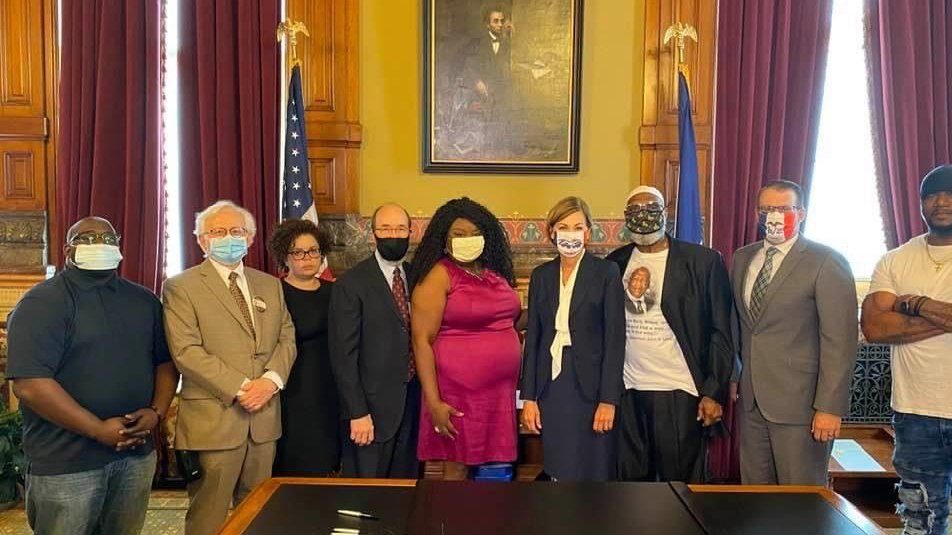More than 40,000 people in Iowa who have completed sentences for felony convictions have regained the right to vote and run for office because of an executive order signed by Iowa Gov. Kim Reynolds.
The Aug. 5 executive order excludes individuals convicted of homicide, who must apply separately for restoration of voting rights. Iowa had been the only state in the nation that permanently stripped voting rights from people with a felony conviction.
The Iowa-Nebraska NAACP State Area Conference provided the estimate of citizens who regained voting rights and worked with the governor to make that right a reality. An amendment to the state constitution would make it permanent.
"The NAACP fervently believes that the right to participate in the political process is a defining aspect of citizenship and our democracy here in Iowa and America," Betty C. Andrews, president of the Iowa-Nebraska NAACP, said in a news release. The governor's action "is an act of tremendous significance to Iowans, to those whose right to vote is being restored, to be sure, but also to their families, and to all of us," she said.
"Today we take a significant step forward in acknowledging the importance of redemption, second chances and the need to address inequalities in our justice system," Reynolds, a Republican, said in her news release.
"The right to vote is the cornerstone of society and the free republic in which we live. When someone serves their sentence, they should have their right to vote restored automatically," she said. "We're going to continue to advocate for a constitutional amendment and make this major milestone permanent. Getting things done involves coming to the table and I want to thank the broad and diverse coalition who has been working on this with me for years."
The Iowa Catholic Conference also advocates for a constitutional amendment, which failed to advance at the end of this year's legislative session. The executive order restored the right to vote, but a future governor could rescind that right.
"Iowa is the only state that by law permanently strips people who have a felony conviction of their right to vote," said Tom Chapman, executive director of the Catholic conference, the public policy voice of Iowa's bishops. The conference "continues to support a state constitutional amendment to end lifetime disenfranchisement in Iowa."
Chapman expressed appreciation for Reynolds' executive order. He noted it requires payment of restitution, but not full payment before a returning citizen has the right to vote.
Bishop Thomas R. Zinkula of Davenport said the executive order is "a good interim solution" while pursuing passage of a constitutional amendment.
"Returning the right to vote promotes the civic engagement of those reentering the community. We are called to support, not obstruct, that reintegration and restoration, for the benefit of all," the bishop said.
"Civic participation is a moral obligation of our faith teaching, and exercising the right and responsibility of participating as voters is a key component," he said. "Restoring the right to those convicted of a felony who have satisfied their debt is a measure of mercy, but also dignity and justice."
The executive order requires Iowans to complete prison, probation, parole or special sentence. Andrews said projections indicate about 4,000 individuals each year will have their rights restored through the executive order.
"This action will benefit people regardless of race or ethnicity, but with the grave racial disparities in our criminal justice system, it will very significantly benefit African Americans and other people of color," Andrews said. "As the late, beloved Rep. John Lewis passionately urged us to understand, 'The right to vote is precious, almost sacred ... the most powerful nonviolent tool we have in a democratic society to create a more perfect union.''
She urged the thousands of individuals now eligible to vote to register so that they can participate in the November elections. Iowa also has same-day registration.
Stephen Edwards, a Catholic who lives in Davenport, is among Iowans who regained their voting rights. Convicted on a felony drug charge in 2012, he successfully completed drug court as an alternative to prison. He works at G and R Integration Services in Walcott and operates Stunning's Boxing Club in Davenport. He looks forward to exercising his civic duty.
"I feel like I'm considered an American citizen again," he said.

